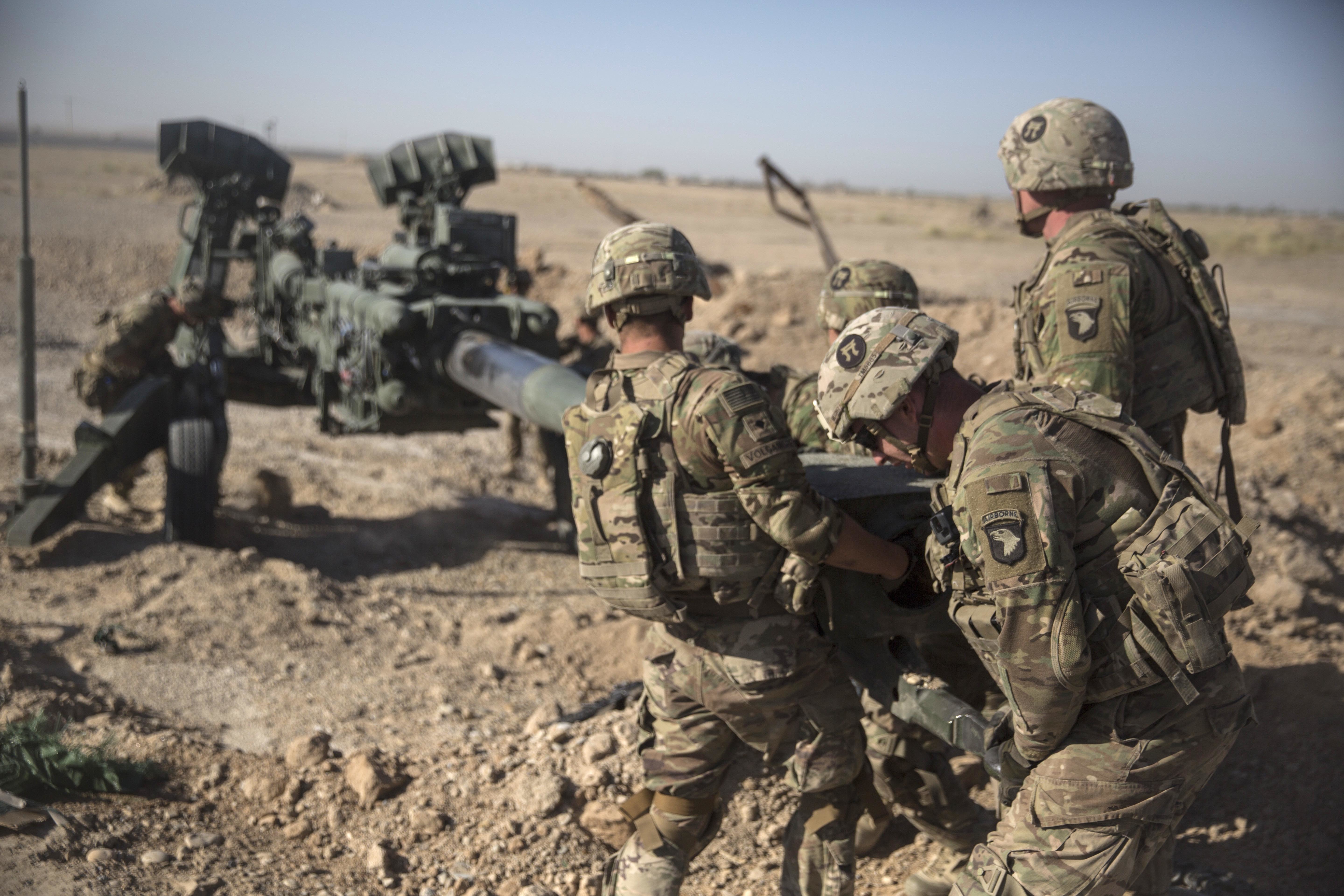
The United States must abandon any hope of winning the war in Afghanistan on the battlefield and seek a peace deal with the Taliban, Pakistan’s top national security official said Tuesday.
ISLAMABAD, Pakistan — The United States must abandon any hope of winning the war in Afghanistan on the battlefield and seek a peace deal with the Taliban, Pakistan’s top national security official said Tuesday.
“End the suffering of Afghanistan and of its people. Let us seek the closure of the conflict instead of winning it,” Pakistani National Security Adviser Nasser Khan Janjua, a former army general, said during an exclusive roundtable with reporters in the Pakistani capital.
President Trump’s blueprint released last summer for the Afghanistan conflict, now in its 17th year, called for an escalated American military effort to force the radical Islamist Taliban to the bargaining table, but Mr. Trump questioned the idea of negotiations after a string of deadly Taliban and Islamic State strikes this year.
The State Department says the U.S. government backs a peace process proposed by Afghan President Ashraf Ghani Feb. 28 that would allow the Taliban to organize as a political party if it agrees to end its insurgency and joins the political process. The U.S. has consistently rejected the Taliban’s demands for direct talks between Washington and the terrorist group and the immediate withdrawal of U.S. and NATO troops from Afghanistan.
Mr. Janjua called for the U.S. to forgo any hope of military victory amid reports that the U.S.-backed government in Kabul controls less than 60 percent of the war-torn country in the face of a resurgent Taliban.
“It is not possible for the U.S. to win back 44 percent of Afghanistan,” he said, speaking at Pakistan’s National Security Division headquarters. “Let us resolve [the war] politically. Let us reconcile. How long do we want to continue to fight in Afghanistan?”
Tensions between Islamabad and Washington soared in recent months in the aftermath of the Trump administration’s hard-line rhetoric against Pakistan’s role in the war on terrorist groups in South Asia, capped by a sharp cut in U.S. aid and military support programs in January.
Members of the Financial Action Task Force, an international regulatory group combating terrorism financing, last month voted to put Pakistan on its watch list over its inability to curtail known terrorist groups’ funding and operations. The move could severely restrict foreign investment and movement of capital in and out of the country, Islamabad argues.
Pakistan has rejected the criticism, citing its aggressive, costly four-year counterterrorism campaign against extremist groups along the volatile Afghanistan-Pakistan border.
“We have already paid a heavy price,” Mr. Janjua said.
Pakistan wants to repair relations with the Trump administration, he said, but is also prepared to take a step back from the U.S. and its regional goals in South Asia should the White House impose further economic sanctions or restrictions on the country’s armed forces.
“Any unilateral action by the U.S. against Pakistan will create a huge, huge difficulty for us, and we will not be able to support the U.S.” in Afghanistan and the region, he said. Conversely, the White House’s embrace of a new peace road map in Afghanistan could bring the two longtime allies closer together.
“Peace in Afghanistan means peace in Pakistan. Both countries have been suffering,” Mr. Janjua said. “This is the way forward. This is way to reduce the violence.”
Mr. Ghani, who faces a national election in July, said late last month that he was ready to offer the Taliban a political role in the Afghan government, including the establishment of a political office in Kabul, should the organization’s leaders join stalled peace talks, an approach Mr. Janjua said was long overdue.
“Why could he not have done this three years before?” he asked. “Ashraf Ghani has done a great thing” with the peace offer.
While supporting Afghanistan peace talks that include the Taliban, Alice Wells, the State Department’s top diplomat on South and Central Asian affairs, flatly ruled out any support for bilateral talks between the Taliban and Washington.
Mr. Ghani’s plan “is not a surrender that’s being offered to the Taliban, but a dignified process for reaching a political framework,” she told a group of reporters Tuesday, according to Radio Free Europe/Radio Liberty.
Mr. Janjua urged Washington to be more flexible in dealing with the Taliban.
“That is the U.S. way of thinking, so what can we do?” Mr. Janjua said regarding Washington’s opposition to face-to-face talks with the Taliban.
An Afghanistan peace conference has been scheduled for late March in the Uzbek capital of Tashkent.






